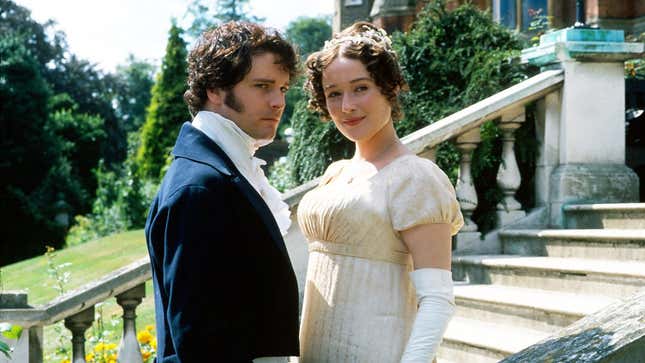Last summer, the apparently scandalous statistic that more young people applied for the reality TV series Love Island than applied for Oxford and Cambridge universities rippled through the commentariat, eventually featuring in Prime Minister’s Questions and that hotbed of middle-class moral panics, Question Time.
While this was not the first reality TV show to provoke a media storm, the scale and impact was unprecedented—the series attracted four million viewers and more than 2,500 complaints to Ofcom. The current series has again been a magnet for controversy, with concerns around “gaslighting” and mental health being offset by record-breaking viewing figures.
Hidden historical arguments often underpin these public furores. The “problems” which Love Island represent are almost always framed as being specific to the current generation—symptomatic of a newly emergent youth culture recalibrated by the tyranny of social media, subverted by a newly hyper-sexualized imaginary and driven by an obsession with celebrity.
The show is regularly identified as the epitome of a shallow, inauthentic age. This historical narrative has even been deployed to explain the tragic suicides of two ex-Islanders. So what can Love Island tell us about our collective emotional history—what, if anything, is new about feelings on and in Love Island?
Moral panic
Moral panics over the “hyper-sexualization” of young people, particularly working-class women, are nothing new. From wartime alarm about “Khaki-fever” to Mary Whitehouse’s moral crusades in the 1960s, anxiety about the romantic interactions of “youths” has been rearing its head throughout the 20th century.
In the broadsheet press, Love Island is often seen to represent a “coarsening of courting rituals”—the Islanders are presented as being motivated by money or winning the game rather than “real” feelings. But anyone who thinks that the intersection between economics, social status, and love is a new thing need simply read any Jane Austin novel, or indeed Sally Holloway’s book on Georgian courting rituals entitled The Game of Love.

Looking beyond the responses of the chattering classes, the Islanders themselves reveal much about the historicity of love—the idea that feelings are not fixed parts of our biology, but contingent on the changing historical moments they are experienced within. Take, for example, the catch-phrase “100% my type on paper.” It’s easy to dismiss it as a throwaway idiom—but this phrase does important intellectual work.
Making matches
The straightforward way to interpret “my type on paper” is about a dissonance between physical appearance and what is generally termed “personality.” The phrase is generally used when the person saying the phrase and the subject of the phrase don’t know each other very well.
There’s clearly some traction to this interpretation—it’s clear that Love Island, through both its contestants and its heavy-handed producers, promote a “type” which works along distinctly, and in many cases worryingly, aesthetic lines. The men are athletic, smooth-chested, sporting 12 packs, orange skin, and fluorescent teeth. The women tend to be relatively similar, albeit with a few less abs. All, of course, heterosexual.
The “types” certainly speak of the racialized and gendered ideologies circulating today—it has been noticed that no black contestants have been selected for “coupling up” in the opening episode for the past four years. The show shines a light on—perhaps even offers a platform for—thorny issues about emotional prejudice in wider society.
This is one way to make sense of the phrase “my type on paper”—focusing on what the “types” themselves tell us about contemporary sexual preferences. But there is another way of making sense of the phrase which opens up a different set of historical stories. While people have been quite literally setting out “types” on “paper” for centuries (the first lonely hearts advert appeared in 1690, just 50 years after the first newspaper), the phrase also reveals much about how a distinctly “modern” understanding of love has emerged.
It seems to be suggesting an irrational, autonomous, and enigmatic understanding of love, defying rules that can be written down on paper. There is a long tradition of sexual love being conceived of in such a way—certain early-modern historians would see this as being rooted in the democratizing process of the late 18th century. According to historian Faramerz Dabhoiwala, processes such as the French Revolution, the Enlightenment, and industrialization unshackled love from the rules and regulations of a feudal regime.
The phrase can also be placed in a shorter trajectory. Claire Langhamer argues that an emotional revolution in the middle of the 20th century created new expectations about love. Rather than primarily providing material security, romantic love suddenly had to complete the “self”—a “soulmate” was now demanded.
The key here was a cultural development which has been dubbed the “psychologization of society”—the popularization of psychological ways of thinking about the world. This is a compelling way of historicizing “my type on paper”—the phrase suggests the person speaking only has conscious control of their emotions to an extent. They can try to set the rules, but ultimately it will be an unconscious part of their psyche which will determine who they love.
Performing love
Is there anything new about the love in Love Island? The show is a product of a moment in which we’ve made a game out of judging the authenticity of other people’s romantic relationships, not just our own. We spend our leisure honing our ability to detect sincere feelings, to discern “truth” in love.
In many ways, this is the real pleasure of the show—does Curtis really fancy Amy? Do Molly-Mae and Tommy have a genuine connection? Which couple perform “love” the best?
As well as being central to the success of the show, this incitement to scrutinize emotional authenticity also helps explain the outraged responses to Love Island. The show poses questions about knowing the “truth” of others’ feelings, and through this, our own. It suggests that the experience of love is not solely determined by “chemistry,” but shaped by shifting social, cultural, and political environments. It’s not simply the language and labels of love which have changed through time, but its very essence.
This mercurial, historically fluid conception of love might seem unsettling for some, but in the words of this year’s Islanders: “It is what it is.”
This article is republished from The Conversation under a Creative Commons license. Read the original article.
